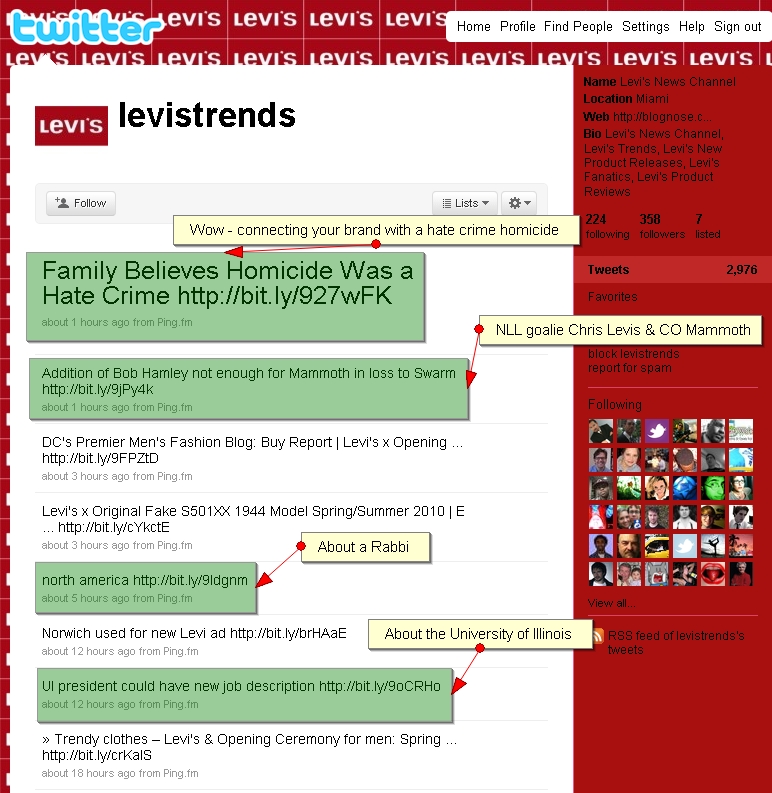
Image via Wikipedia
I know many of my posts lately have been focused on the automotive industry, but personally I feel you can learn a lot from other industries that can be applied to your own. As my last actual car buying experience (not including curiosity excursions onto car lots and test drives) was 11 years ago I am definitely finding the experience very interesting.
One thing that seems to be a constant factor though is an over reliance on CRM Software (Customer Relationship Management) which because of one dealership in particular has inspired this post.
1. Automate every exchange
You’ve just been given a sales lead, now what?
Apparently the thing to do these days is to add it to your CRM software and let it do all the work. After all, you’ve spent all that time drafting emails and set them to send at specified points in the sales cycle, what else do you need to do?
Yes, we live in a technology heavy world, but that doesn’t mean you shouldn’t personalize your content. Yes, it’s more time consuming and it won’t result in a sale every time, but in a sea of automation, guess who stands out?
To me, since my initial interest was sent through a website, an initial automated reply letting me know who you are and that my contact information was received is fine. However, you should take the time to send a personal email as a follow up. It doesn’t have to be long.
One of the internet managers I’ve dealt with sent a note that specifically mentioned comments I made on the contact form as well as tried to sell the product. This is a stark comparison to my inspiration. He took three emails before he introduced himself. Although, I wasn’t surprised as this was just one in a long line of uninspired auto-populated emails.
2. Inundate the customer with emails (and phone calls)
This definitely seems to be prevalent in the automotive industry. Rather than wait for you to respond, I’m going to keep contacting you until I make a sale. The thinking behind this seems to be that if they don’t pester you, they’re no longer on your radar and so have lost the sale. The problem though is it’s very easy to cross the line and be seen as spam. You might be surprised at how many customers won’t respond at all but will simply click the button in their email marking your emails as spam. Get enough spam complaints and you’ll get blacklisted. In some cases, it might not be just your email that gets blacklisted, but your whole company’s, especially if you have several salesman taking this approach.
So far since August 11, I have received 16 emails from my inspiration salesman. At least 14 of them were before the car was available. 7 of them were within the first week including two in one day. I’m just very thankful that despite his emails claiming otherwise, I did not provide a phone number.
3. Provide plenty of evidence that the email is a form letter
I am contacting you in reference to the 2011 Nissan Juke that you inquired about online at NissanUSA on 8/11/2010.
We have several new arrivals in stock here at that fit the description of the car you were considering. Several of these may be a different color and/or have additional features compared to the one you requested information about. However, one of these vehicles may surprise you and be just what you are looking for!
I would love to talk to you and see if one of these new cars might meet your needs. Please reply to this email or call me at , be sure to ask the operator for (name removed).
This is just a portion of one of the emails I was sent. I am quite impressed that despite all odds, they were somehow the only dealership in the United States to score several Jukes a full month before they were shipped to dealerships. And no, I didn’t remove the information after call me at. Glaring automation errors that left nonsensical blanks was pretty much the standard in his emails.
4. Cite your desire to provide personalized service while using nothing but gap ridden form letters
My name is (name removed) and I am the dedicated Internet Sales Manager assigned to you. My job is to give you the personalized attention that makes the buying process here at so unique. I would like to speak with you regarding the Juke in which you expressed an interest.
This is from the 8th email I received from him. Needless to say, his 7 prior emails (nor any of his subsequent emails) did anything to convince me of his genuineness.
I’m all about personalized service, but actions speak louder than words and if all your contact is via impersonal auto-populated emails, I’m not going to find it very believable.
5. Try to force a sale before the product is even available
If your product isn’t yet available for purchase, realize that while some customers will want to know every little detail about it, others won’t be interested until they can physically see and touch it. Yes, quite a few people are willing to buy a brand new car model sight unseen, but that’s the minority. Don’t drive off your sales lead trying to sell them a product that isn’t available yet.









![Reblog this post [with Zemanta]](http://img.zemanta.com/reblog_e.png?x-id=3818f2f2-a847-4e19-9a20-9ddde28a3020)


![Reblog this post [with Zemanta]](http://img.zemanta.com/reblog_e.png?x-id=299cfb9f-bfdf-407c-8b4a-da1b53363e82)

![Reblog this post [with Zemanta]](http://img.zemanta.com/reblog_e.png?x-id=2cbc1b05-f06f-4a9c-80fc-5f2c87dd896b)

